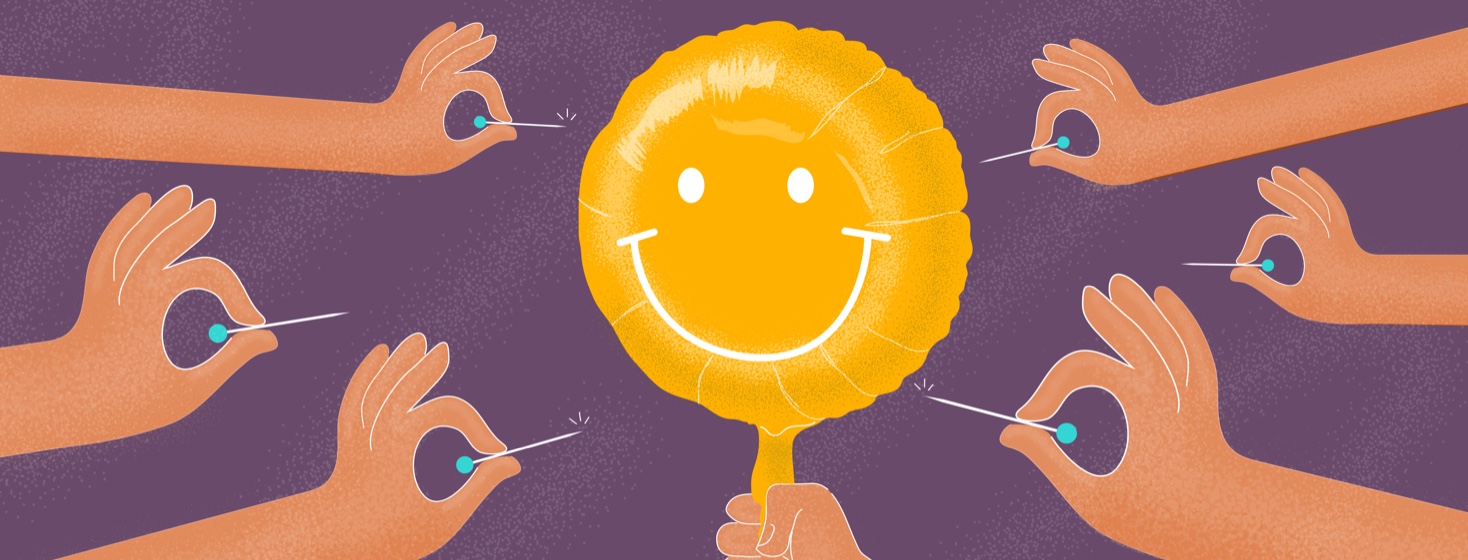Does Advice to "Stay Positive" Help?
When I was first diagnosed with lung cancer, many friends and family members told me to “stay positive.” As someone who just found out she had stage IV lung cancer, I wasn’t quite sure what to do with this advice. I had just received completely shocking, life-altering news and I had no idea how to translate my feelings into positivity.
Positive things happens because of advocacy
Instead, I did what I had to do — I moved forward, found a thoracic oncologist and started treatment, just hoping that it would work. I was fortunate to have a good response to my treatment, but I didn’t believe then and still don’t believe today that this response had anything to do with “staying positive”; in contrast, it had EVERYTHING to do with advances in research that made my targeted therapy possible.
In the past almost seven years, people have told me again and again that they believe my “positive attitude” is one of the reasons why I have done so well with my lung cancer treatment. I don’t agree. I believe that my treatments would have worked exactly the same if I had a more pessimistic attitude. However, my quality of life definitely would have been different and considerably worse.
"Stay positive" means being cautiously optimistic
Over time, I have redefined what “staying positive” means to me. As opposed to being cheerful no matter what happens, it means being cautiously optimistic. I try to enjoy and appreciate every day, not dwell on the past, and also attempt not to worry too much about the future. This doesn’t mean that I don’t plan things for the future, because I do. I have found that it is important to my mental health to have events that I look forward to attending and goals that I wish to achieve.
A positive attitude doesn't just happen...
This attitude wasn’t possible for me when I was first diagnosed; it only became achievable as I learned to live with the uncertainties of lung cancer. For me, therapy and advocacy work helped in developing a sense of resilience and hope. By learning about mindfulness and progress in lung cancer research, I gained the ability to view my present and potential future through an optimistic lens.
My future is still open for new experiences
I recently read a blog in Psychology Today on this topic that really resonated with me. According to the author (a psychiatrist), “A depressed person typically feels trapped, they see their future as both inescapable and intolerable. They focus on the past instead and fantasize about changing that — they ruminate about past events and decisions they wish had gone differently.” That’s how I thought about lung cancer when I was first diagnosed and no matter how much I was told to “stay positive,” it was difficult not to wonder why I had lung cancer and feel negative about my future.1
This blog goes on to describe how people who aren’t depressed “may reminisce about past events, sometimes fondly or sometimes ruefully, but they know the past can’t be altered. If they are going to change anything, it has to be in the future.” This is exactly what I have figured out post-diagnosis; I have realized that my future is still open for new experiences.
Enjoy life as it currently exists
Does this mean I always “stay positive”? No. Does it mean that being cautiously optimistic makes me more likely to survive long term? Not at all.
But, does it mean that I can enjoy my life as it currently exists? Yes, THAT I can definitely do!
Editor’s Note: We are extremely saddened to say that on June 23, 2024, Ivy Elkins passed away. Ivy’s advocacy efforts and writing continue to reach many. She will be deeply missed.

Join the conversation